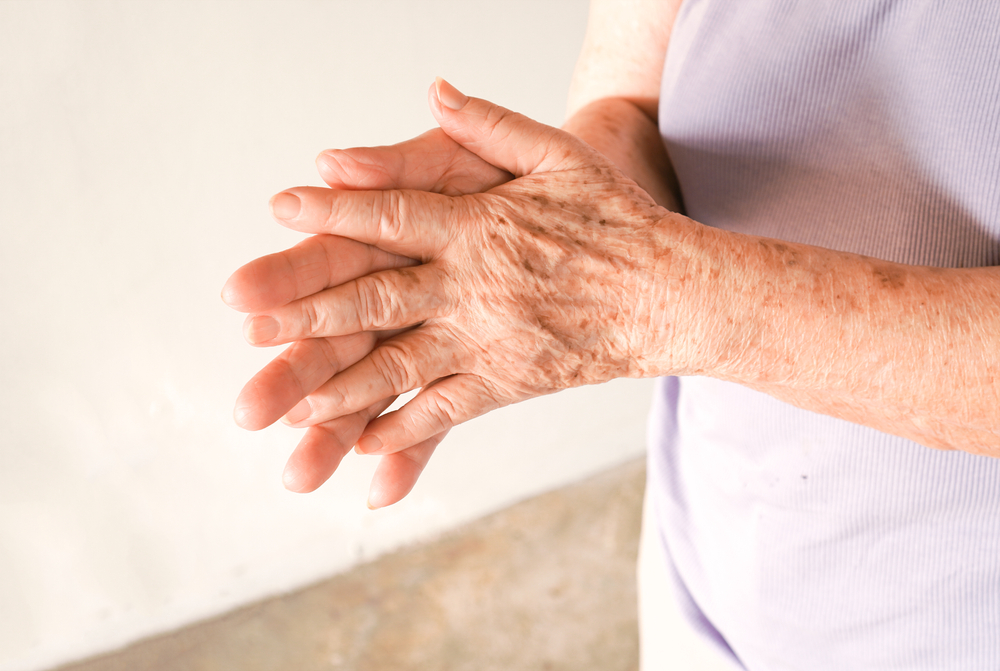Bruising in the Elderly: What Causes Skin Bruising in Seniors?
Category:

Bruising in elderly people is a common condition that we see frequently. Have you visited a nursing facility or Alzheimer’s Care Center and noticed bruises on elderly people’s arms and hands?
If you have been around an elderly person, or if you are not as young as you once were, you have probably experienced or witnessed such bruising. Discoloration on an elderly person’s skin is usually not a major cause for concern.
Most of the skin changes you observe can be easily explained. Frequent bruising in elderly people should be evaluated to determine whether it is merely a change in the resilience of the skin or something more serious.
Elderly skin bruising is a common symptom of thinning skin and fragile blood vessels just beneath the skin. A simple brush against a doorknob can result in a bruise that covers the entire hand.
Sometimes a bruise on the arm can even occur if you are assisting someone to the bathroom, assisting with bathing, or helping them change clothes. If you are caring for an elderly person, make sure you use a gentle touch and if possible, allow them to hold your arm for support instead of holding or touching their arm or hand.
This easy bruising in elderly patients is usually painless, and most people don’t know the damage to the skin occurred until they notice it later.
Why do Elderly People Bruise Easily?
There are many causes of skin bruising in the elderly. Thinning of the skin is the number one cause of bruising and skin damage. In some people, the skin becomes so thin that bruising and even small tears occur in the skin, especially on the hands and arms. Skin tears on fragile skin are most common in an area that is already bruised or damaged.
What Else Causes Skin Bruising in Seniors?
Medications can be another cause of bruising on delicate skin. Blood thinners, aspirin, and some antibiotics can contribute to bruising because of the anticoagulant properties they have. Drugs prescribed to treat allergies, eczema, and asthma, called topical and systemic corticosteroids, can also have an effect when it comes to causing bruising in elderly patients.
If you are taking any of these medications that can cause bruising in the elderly, you should consult your doctor and discuss your medication regime regarding your skin condition.
Nutrition can be a factor. An iron deficiency or an inadequate supply of Vitamin C can cause your skin to bruise easily. Have your doctor test those levels and prescribe a supplement if indicated.
How to Treat Bruising in the Elderly
There is not a specific cure for elderly bruising, however supple skin is not as likely to tear or bruise. Applying moisturizing lotion to your hands and arms, or anywhere else you notice dryness or bruising can be helpful. Hydrated skin is happy skin!
If you injure your skin apply a cool compress. Do not apply it directly to your skin. Place a barrier, such as a thin towel or clean dishcloth between the compress and your skin. Then try applying a warm, but not hot, compress to speed up the healing process by increasing circulation to the wounded area.
If your skin is torn, keep it clean and covered until it heals. Use a clean piece of gauze, but no tape on your delicate skin. A skin tear usually heals on its own in a few weeks.
How Can We Prevent Bruising in the Elderly?
Try to wear long sleeves and long pants if the weather permits. You can try using rolled bandages wound lightly around your arms to protect them if you’re working outside.
Eliminate tripping and falling hazards in your home. This will help you avoid the risk of falling which can cause more serious injuries than skin bruising.
Protect your skin from the sun. Use skin products that are gentle to the skin and hypoallergenic.
We can’t completely eliminate the bruising that occurs as we age, but the tips suggested here can help you understand the reasons for the condition and how to minimize and treat your symptoms.
Remember to pamper and take good care of your skin. As always, partner with your health care professional to get the best advice and plan of care for your personal situation.
Subscribe
Date: 2020-09-22
Category:


